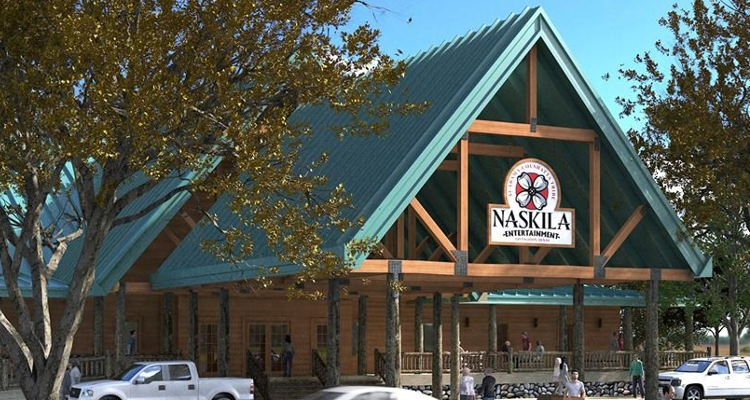Despite facing opposition from state officials that could still see it forced to close its Naskila Gaming facility near the city of Livingston, the Alabama-Coushatta Tribe Of Texas has revealed that it welcomed some 38,000 players to the Class II venue during its first three months of operation.
According to a report from the Houstonia magazine, the Alabama-Coushatta Tribe Of Texas, which is one of only three federally-recognized tribes in Texas, opened the 15,000 sq ft and alcohol-free Naskila Gaming on June 2 and the 24-hour facility with its 365 slots and Timber Grill restaurant has not shut since.
“It’s a quaint little spot and we’re proud of it,” Carlos Bullock from the Alabama-Coushatta Tribe Of Texas told the magazine.
However, not everyone is pleased with the success of the Polk County enterprise and July saw the office for Texas Attorney General Ken Paxton file a petition with the United States District Court For The Eastern District Of Texas that asked the court to overrule sections of the 1988 Indian Gaming Regulatory Act and close Naskila Gaming, which sits on the tribe’s 10,200-acre reservation located some 72 miles west of the Texas border with Louisiana.
“Their electronic bingo machines are an illegal lottery,” Kayleigh Lovvorn, a spokesperson for the conservative Republican Paxton, told the magazine.
At issue is a measure known as the Restoration Act, which was passed by Congress in 1987 and granted the Alabama-Coushatta Tribe Of Texas federal recognition while restricting it from operating any forms of gaming prohibited under local state laws.
However, federal lawmakers ratified the Indian Gaming Regulatory Act the very next year and this legislation established three classes of legal reservation gaming with only Class III, which authorizes full-scale Las Vegas-style slots and table games such as blackjack, requiring tribes to negotiate agreements with their resident state. The measure additionally allows the federal government to independently sanction lower classes of gaming such as that being offered at Naskila Gaming. Of the 493 aboriginal casinos located in the United States, the Houstonia reported that most are Class II outfits that run games of chance such as electronic bingo under the watchful eye of the National Indian Gaming Commission and generating some $28 billion in annual revenues.
Full Class III casino gambling is not permitted in Texas with the sole exception of the tribal-owned Kickapoo Lucky Eagle Casino Hotel near the state’s international border with Mexico and officials had shut down a previous incarnation of Naskila Gaming almost 15 years ago after successfully arguing that their own edicts override those set by their aboriginal counterparts.
The magazine reported that the Texas tribe of 1,250 members it is cautiously confident about its chances in court and a trial date has now been set for June. Clint Poncho, a member of the Alabama-Coushatta Tribe Of Texas Tribal Council, told the local Dayton News newspaper that he does not expect a ruling in the case “for at least ten months” while proclaiming that he is “confident we will be a winner in this fight”.
Fellow Alabama-Coushatta Tribe Of Texas Tribal Council member Roland Poncho told the Tyler County Booster newspaper that the tribe intends to continue operating Naskila Gaming “24 hours a day [and] seven days a week until the court makes its final decision”.
“Residents of deep east Texas who enjoy gaming and want to do it in a friendly alcohol-free environment are now able to do so on our reservation,” Jo Ann Battise from the Alabama-Coushatta Tribe Of Texas Tribal Council told the Tyler County Booster newspaper. “As most of our neighbors know, our tribe has occupied our tribal lands in the Big Thicket region for more than 200 years. However, what many in the region may not realize is that our tribe is a fully functioning sovereign government with a full array of health and human services to support. Gaming offers a stable source of income to sustain and improve these vital tribal services while creating jobs for both tribal and non-tribal citizens.”


